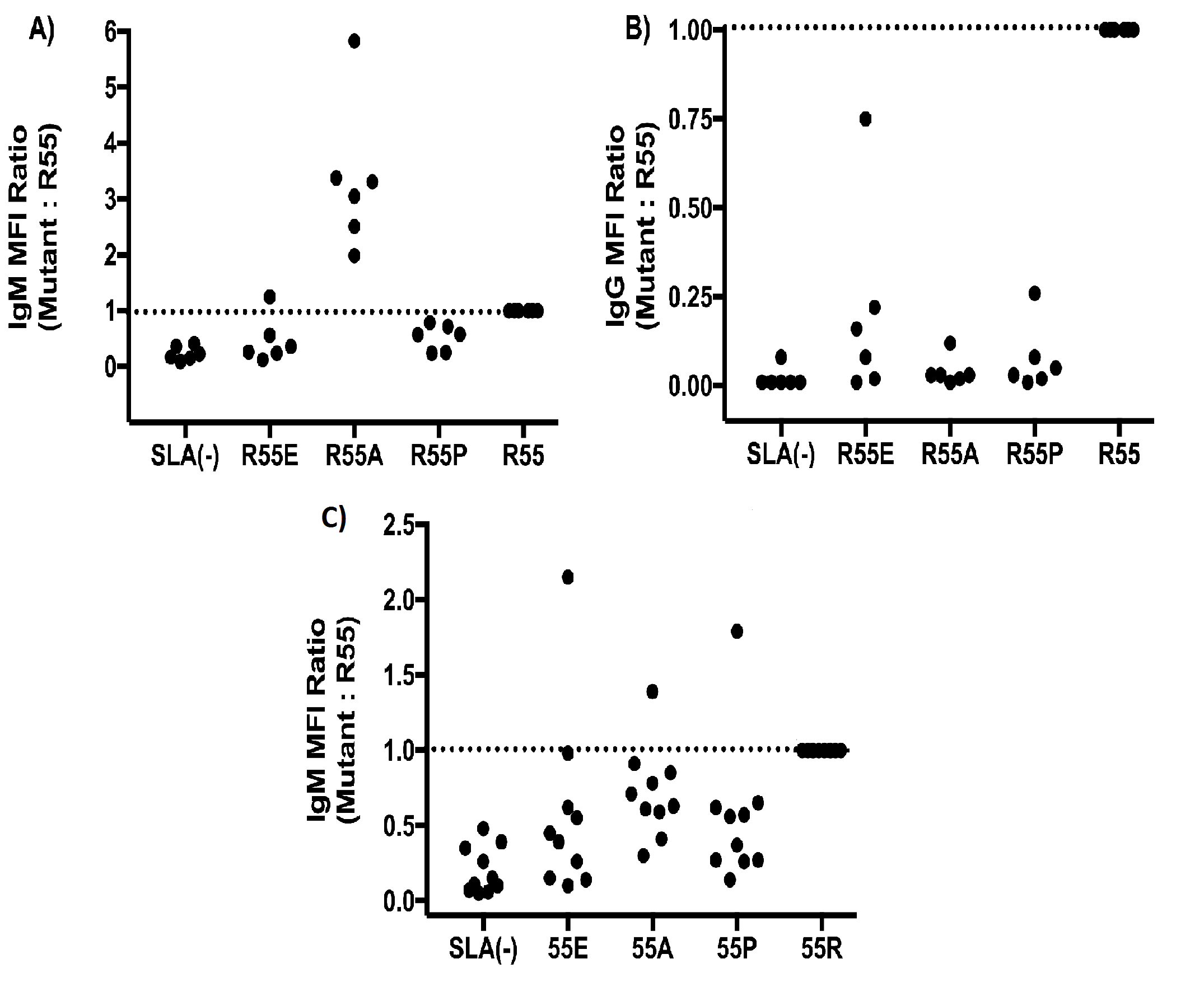Targeted Epitope Mutagenesis as a Strategy to Decrease Xenoantibody Binding
University of Alabama-Birmingham, Birmingham, AL
Meeting: 2019 American Transplant Congress
Abstract number: D75
Keywords: Epitopes, Flowcytometry crossmatching, HLA antibodies, MHC class II
Session Information
Session Name: Poster Session D: Xenotransplantation
Session Type: Poster Session
Date: Tuesday, June 4, 2019
Session Time: 6:00pm-7:00pm
 Presentation Time: 6:00pm-7:00pm
Presentation Time: 6:00pm-7:00pm
Location: Hall C & D
*Purpose: Xenotransplantation, the use of genetically-modified pig organs for transplantation, has been limited by antibody-mediated rejection. The generation of a three-antigen knockout pig provided a crossmatch negative background on which to begin clinical trials. Individuals sensitized to the human major histocompatibility complex (MHC) possess cross-reactive antibodies with the swine MHC, limiting the participation of this population in clinical trials. Our previous work has shown that antibodies are directed against arginine in the 55th position (55Arg) of all swine MHC DQ beta chains. It remains unknown if targeted mutagenesis of 55Arg can circumvent antibody barrier without compromising MHC protein expression.
*Methods: Glutamic acid, alanine, and proline were chosen for comparison to 55Arg based on the electrostatic potential of each amino acid. Human embryonic kidney cells were transfected with three swine MHC DQ 55Arg mutants. These cells were purified and monoclonal antibody panel screen was performed to demonstrate successful cell-surface expression. Sera from individuals on the solid organ transplant waiting list sensitized to 55Arg in the human MHC DQ beta chains were tested for antibody binding to the mutant cell lines compared to wild-type 55Arg.
*Results: All four amino acid variants were expressed at the cell surface as measured by monoclonal antibody. Mutation of the wild-type 55Arg to glutamic acid significantly decreased IgG and IgM antibody binding. Mutation of 55Arg to alanine decreased IgG but increased IgM antibody binding.
*Conclusions: Human sera antibody binding to epitopes on the swine MHC can be avoided by targeted mutagenesis. This approach could provide crossmatch-negative pigs for highly sensitized individuals without compromising pig immunity.
To cite this abstract in AMA style:
Ladowski J, Martens G, Wang Z, Reyes L, Tector M, Tector J. Targeted Epitope Mutagenesis as a Strategy to Decrease Xenoantibody Binding [abstract]. Am J Transplant. 2019; 19 (suppl 3). https://atcmeetingabstracts.com/abstract/targeted-epitope-mutagenesis-as-a-strategy-to-decrease-xenoantibody-binding/. Accessed February 22, 2026.« Back to 2019 American Transplant Congress

